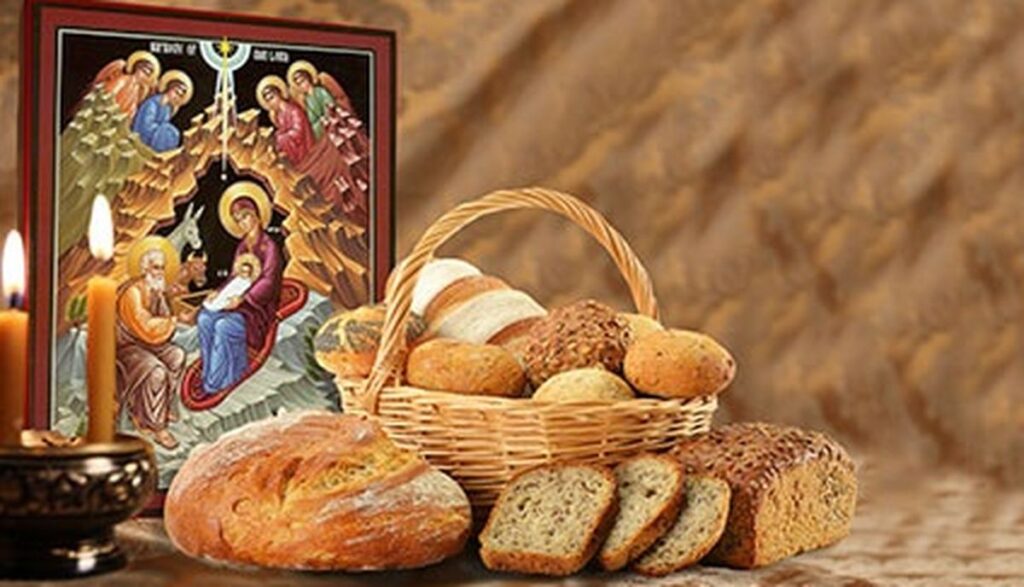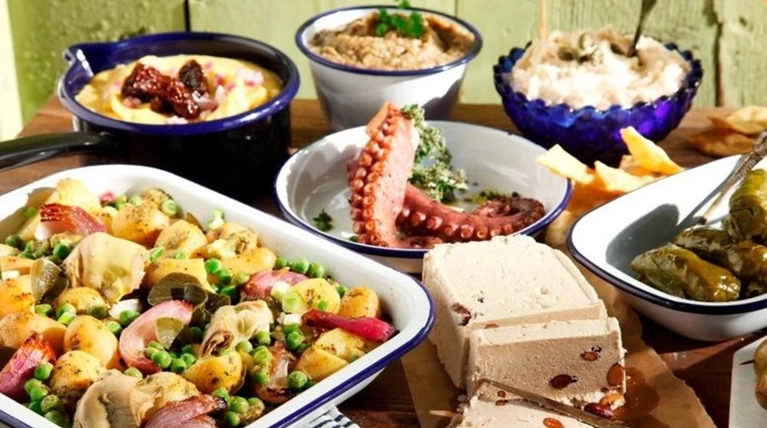By Myrto Katsouli,
Upon the first week of March, the Orthodox calendar has been marked with the upcoming Easter season, a very special, yet religiously overwhelming holiday. Easter is for sure not as surrounded with joy, presents, and happiness as Christmas, since it symbolizes the Passion of the Christ, thus Christians remember how Jesus was led to the ultimate punishment, his corpus-deadly crucifixion.
According to Orthodox Christianity, 40 days before Easter Eve, believers are to pay homage to and honor the process Jesus Christ had been through, by following a strict vegan — and not only — diet, also known as “nisteia”. This diet excludes meat, dairy products, and olive oil and becomes even stricter when “Holy Week”, the week before Easter, arrives. The goal of this short-term meat deprivation is for the believers to understand, embody and “relive” the pain that Jesus Christ experienced while being tortured for His faith.
However, nisteia is a sort of restriction that is not only aiming to limit the corporal nutritional needs but is also meant to make people overcome any other physical ones. It goes before the mindset of avoiding every aspect of the physical world, in order to attain maximum mental and divine capacity and to come closer to God. This also symbolizes the disengagement of Jesus from his mortal body and his resurrection from the dead. And, according to the Bible, Jesus only came back as a reminder that the spirit never dies, and He is and will always be up in Heaven to protect us from any bad things happening and help us discover paths of our own.

Even though this religious method may seem extreme and illiberal, it is actually much more lenient, according to the real essence of Christianity. That is because being a Christian is a matter of personal choice and belief and not an imperative dictate of a ruthless Christian figure. The “rule” applies to the nisteia as well; Christians may choose either to follow the food and physical restrictions or follow partially or not accept at all this aspect of religion. Some may even want to challenge themselves and check their own limits and how they can balance a personal need on their own terms.
No matter the decision Christians make, to follow or not this strict regime, their faith is — and should not be questioned — a problem that arises frequently amongst the Christian population. That is because overzealous religious people, who interpret every cosmic event as God’s intent, tend to fear that their protentional disobedience may lead to the ultimate afterlife punishment. That being the case, however, only upon their narrow religious critique, they only proceed to religious extremes not for their own personal fulfillment, but for pleasing whatever divine power is out of this world — literally.
Nowadays, Christianity has evolved more as a mentality than a religion, since its basic aspect has always been the same. Any historical reference about Christian severity comes from the strict church regimes, who functioned by divine right. In order to control the population, they were taking advantage of the religion and the effect that was having on — at least a majority — uncultured citizens. Christianity, the Bible (as a rule-maker), and God (as an authoritarian) can be perceived as today’s political parties, the Constitution, and each governing president, but at different levels of extent.

Since the church has lost its civil power, it has focused more on the faith itself and people are let to welcome Christianity on their own. And due to society’s progress in all aspects, a Christian can proceed very easily to any religious practice, much like nisteia. Vegan products and substitutes for the “forbidden goods” are in abundance in the marketplace. However, in my opinion, this goes against the true ideology of restriction and deprivation that this method is all about.
And that is because the goal is for the believers to understand and challenge their faith and not to sneak out of it by finding alternatives. Besides, true faith under unconditional terms from and for any God or entity comes from within, in a judgment-free and open-minded zone. Faith is not an obligation, but a choice; an internal urge to believe, love, and live.
References
- Fasting and Feasting the Greek Orthodox Way, greece-is.com, Available here
- Katerina O Sarri, Nikolaos E Tzanakis, Manolis K Linardakis, George D Mamalakis, Anthony G Kafatos, Effects of Greek Orthodox Christian church fasting on serum lipids and obesity, BMC Public Health, 2003, ncbi.nlm.nih.gov, Available here
- The Fasting Rule of the Orthodox Church, abbamoses.com, Available here
- Τι να φάω στη νηστεία, dimakopoulosi.gr, Available here




